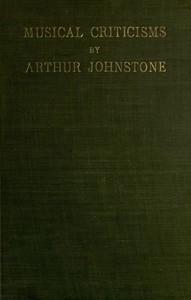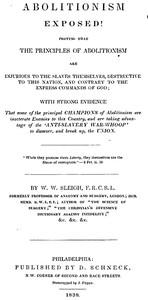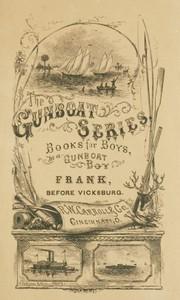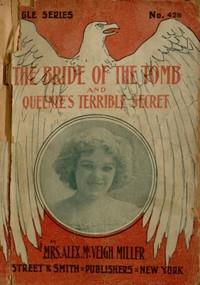Read this ebook for free! No credit card needed, absolutely nothing to pay.
Words: 85342 in 10 pages
This is an ebook sharing website. You can read the uploaded ebooks for free here. No credit cards needed, nothing to pay. If you want to own a digital copy of the ebook, or want to read offline with your favorite ebook-reader, then you can choose to buy and download the ebook.


: Musical Criticisms by Johnstone Arthur Elton Oliver Contributor Reece Henry Contributor - Music History and criticism
Note.--The performances noticed were all given at Manchester, except where otherwise stated.
PORTRAITS.
Aged 20 face p. 10
Aged 26 face p. 30
MEMOIR.
ARTHUR GIFFARD WHITESIDE JOHNSTONE was born December 3rd, 1861, the fourth son of the Rev. Edward Johnstone and Frances Mills. His father was then taking the duty at Colton in Staffordshire, but in the following year accepted the living of Warehorne in Kent; this he resigned in 1866 and went to live at St. Leonards. Mr. Johnstone died in 1870, and the direction of Arthur's education fell entirely upon his mother. Mrs. Johnstone gave her life to good works and to the care of her children, one of whom was an invalid. Arthur looked on her as a saint, and the thought held up his belief in humanity during the somewhat long struggle when his powers and aims were uncertain, and when he had to observe excessive dulness, dreariness, and meanness at close quarters. He was also beholden to her for the gift that was at last to determine his career. She was a good musician, and it was from her that Johnstone inherited his fine taste and received his first instruction in music. Later he studied under Mr. W. Custard, a local organist. The atmosphere of his home was religious--extreme Anglican approaching to Roman Catholic. Johnstone, though he became by reaction anti-clerical, continued to appreciate the value of religion, chiefly through art and music, as his letters and criticisms show. But his bent was secular as well as artistic; a high Anglican school and a high Anglican college were therefore not a pasture in which he could thrive. His spirit was foreign to theirs. It says much for his strength of mind, that these institutions left him able to admire certain forms of Christian art.
Johnstone left Radley at the end of the summer term 1878, and for the next two years worked under Messrs. Wren and Gurney for the Indian Civil Service, the limit of entrance then being nineteen years. It must be admitted that he made no serious attempt to succeed, and that here, as at Oxford later, the prospect of an examination proved to be the reverse of an incentive to work. Perhaps it was fortunate for him that he failed, for though he would have found a great interest in the natives he would have been repelled by the average Anglo-Indian; besides, his abilities did not lie in the direction of legal and political administration. In October, 1880, Johnstone came up to Keble College, Oxford, and he quickly had a small circle round him. Among his friends were R. A. Farrar, son of the well-known Dean, and G. H. Fowler, the biologist, of his own College; Winter, of St. John's, the best musician among undergraduates; his biographers; and, later, Prof. York Powell, who instantly detected his ability and force of nature. Amongst the dons of Keble, Johnstone cared for two. One was the Warden, the Rev. E. S. Talbot, now Bishop of Southwark, who behaved with tact, and encouraged as far as he might a mind of no pattern type, which would not bring the College any regulation honours; the other was the Rev. J. R. Illingworth, the best writer of the school, and since known as a philosophical preacher. Ascetic, but thoroughly humane, Mr. Illingworth attracted Johnstone by his honesty and fineness of temper. But these clergymen, after all, dwelt in their own world, not in his. Until he met York Powell, Johnstone had found no older man from whom he could learn without cautions and reservations, and who struck him as a master-mind and a perfectly free spirit. The two men signally valued each other's conversation; they had many delicate qualities in common--the kind of delicacy only found in Bohemians of experience who have kept their perceptions at the finest edge. Powell materially helped Johnstone more than once by letting persons of consequence know what he thought of his younger friend. Even in Powell's record there was hardly any friendship more completely unruffled.
To what did this sensibility tend, what did it crave for? Not chiefly for definite learning, or book-knowledge, or for abstract philosophical truth. Johnstone's nature and gifts did not set towards scholarship or to pure speculation. He wanted, no doubt, to write, but he never cared to practise style as a mere handicraft; "let us have," he would say, "something with blood in it." He did not ask for religious solutions or consolations. Since nearly all he printed was on musical subjects, only his letters and our memories can give the impression of what he wanted. It was a sufficiently rare ambition among the Oxford young men of our time, though often enough professed. He wanted art and beauty. This desire, of course, in others often was a cant; there were scholars and verse-makers--more or less of the "aesthetic" type--sentimental and hard at bottom like most such persons, who cultivated beauty, and have usually come to nothing except prosperity. Johnstone was of another race to these; they never heard of him; he did not care for the main chance; he was in profound earnest. Few young men looked at life with so definite an aspiration to get the grace, enjoyment, and beauty out of it, and so definite a conviction that not much of these things is attainable. To such spirits, pre-appointed to suffer and wait, society seems at first an irrational welter, out of which, as by a miracle, emerge enchanting islets of grace, and wit, and cheer. The desire to find beauty in things or persons, and the desire to find soul and humanity, are the unalloyed, intense, and usually disappointed passions of elect youth claiming its rights. It is the second of them that saves a young man from the conceit and exclusive folly that may beset the first. Johnstone's tastes, his reading, loves and friendships were guided by these two passions, and by a third which took off from the strain of them, and was equally imperious--the wish to study the world and to be entertained reasonably. Classes did not exist for him, except that he often felt he was more likely to be able to foregather with and help men and women who were at a discount in the world. With such warring elements and a spirit so hard to satisfy, it was no wonder that his earlier years seemed planless, and in part were so. The instinct for travel and odd experience lasted long. No one but his near friends had much knowledge of this complex but essentially single nature. To them there seemed to be more than a seed of nobility and fair example in such a youth, so externally disappointing to parents, and guardians, and shepherds of colleges. Out of it was gradually wrought a character full of fire and aspiration, fundamentally austere and uncompromising in loyalty and in artistic conscience, but masked under a certain reticence. But this is to forestall by several years.
Johnstone had entered Oxford at a time of great intellectual ferment. Looking back we can now see that it was during the years about 1880 that the revolutionary flood ran highest. The authority of Darwin and Huxley was unquestioned by many of the younger generation and all-embracing. The vague Christianity and sentimental optimism of Tennyson was held in little esteem beside the wider tolerance, the subtle analysis, the ceaseless curiosity of Browning. Above all "the Bard," as Swinburne was admiringly called, was the poet of the young men. Another very important factor in the mental development of our generation--and for Johnstone, perhaps, the strongest of all--was supplied by the French literature of the century, from the Romantic School onwards. It is no wonder, therefore, that the reaction from the High Church influences and surroundings of his youth was severe and complete, and that his highly aesthetic nature demanded the fullest artistic and intellectual freedom. The so-called "aesthetic movement," as we have before implied, left him untouched. He would have nothing to do with the attempt to symbolise and revive a civilisation that had utterly passed away, nor with the deliberate neglect of the modern world, and its most intense and living art--Music. Johnstone had not much mediaeval sense, and was sparing in his appreciation of Rossetti, to whom he became unjust. What he liked best was "Jenny," though he was rightly critical on the unsound streaks in its rhetoric. It was first brought home to him, as to others of his group, by the skilful and dramatic reading, in a singular clanging voice, of his chief Keble friend, C. W. Pettit: a young man of high and melancholy character who was found drowned, probably by accident, in the Upper River, near Oxford, in the spring of 1882. A memorial stone with Pettit's initials marks the place, in an unfrequented reach of the stream, and the inscription, if not effaced, is now a mystery except to some few who remember him.
"I was moved to tears the day before yesterday by the appearance in this place of a pretty face.
"There she was, a radiant and triumphant vindication of human nature among the myriad libels on the human form.
"I love the wonderful human body. How utterly the most beautiful of imaginable things in its strange dualism; perfect form expressed with infinite subtlety in two mutually supplemental phases. The one--tall, lithe-limbed, and athletic, with its shifting net-work of muscles beneath the clear brown skin, boldly chiselled features and short crisp hair--emblem of strength and swiftness and godlike protection, buoyant and fearless; the other--a harmony of exquisite curves, white and sensitive, and crowned with rippling hair, fulfilled of tender life and wondrous grace--living type of fruitfulness. To say that either deviated from the abstract perfection of form is merely to say the very idea of sex is such a deviation; and is there not a certain divine suggestiveness in this very fact? Their union is perfect Beauty--veils of the great human Sacrament. And all this is faded clean out of modern life. The belief in the body is dead. I believe some of us live and die never knowing the likeness of the human form, just as some of us do without ever seeing the sunrise.
Free books android app tbrJar TBR JAR Read Free books online gutenberg
More posts by @FreeBooks

: Flagg's The Far West 1836-1837 part 2; and De Smet's Letters and Sketches 1841-1842 by Flagg Edmund Smet Pierre Jean De Thwaites Reuben Gold Editor - West (U.S.) Description and travel; Indians of North America Missions; Rocky Mountains; Illinois Descripti


: Abolitionism Exposed! Proving the the Principles of Abolitionism are Injurious to the Slaves Themselves Destructive to This Nation and Contrary to the Express Commands of God by Sleigh W W William Willcocks - Slavery United States; African Americans Colon





